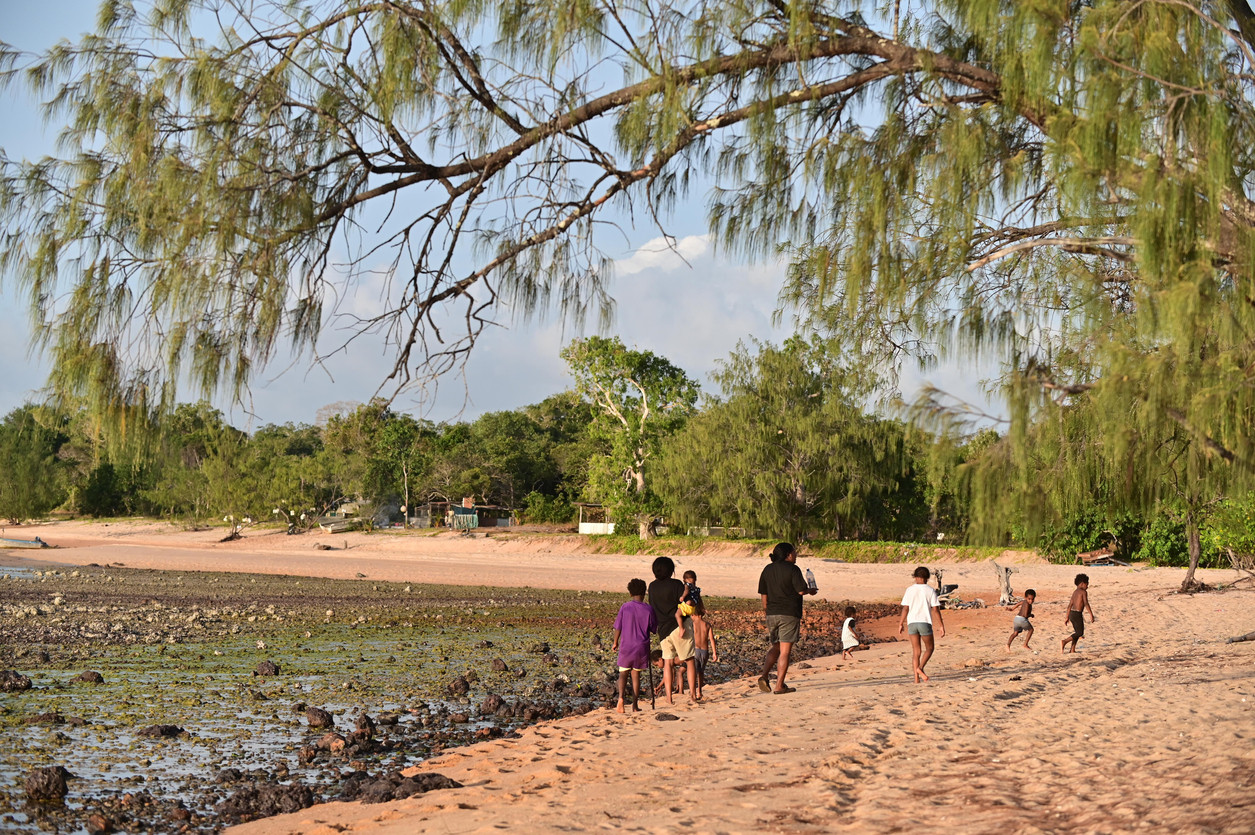There is no denying that we are experiencing the tragic effects of a warming climate. Right now, in the summer of 2023, the northern hemisphere is facing record temperatures and fires on an unprecedented scale. My country, Australia, saw widespread flooding that continued unabated for months in 2022, causing billions of dollars’ worth of damage to homes and livelihoods. Two years earlier, Australia experienced its Black Summer fires, which led to the deaths of nearly 500 people.
Critically, those most vulnerable to the impacts of floods, droughts, fires, and storms are frequently those living in poverty. In Australia, climate change will severely impact First Nations peoples, compounding historical injustices and exacerbating existing inequalities. People with disabilities, children, and the elderly will also be disproportionately affected by increasing heat stress, air pollution, and water scarcity. Climate change will exacerbate inequalities between and within societies, proving most devastating for people who lack guarantees for the full exercise of their rights.
There is an urgent imperative to find rights-based solutions to the challenge of climate adaptation. But more focus needs to be placed on the rights enshrined in the International Covenant of Economic, Social and Cultural Rights (ICESCR), to guarantee that the worst impacts of climate change are not borne by the most vulnerable citizens worldwide. Historically, ICESCR rights have sometimes been seen as “second generation” rights—aspirational social policy goals at best that lack the enforceability of civil and political rights. But the climate emergency directly threatens ICESCR rights on a scale that is difficult to comprehend. In this new reality, these rights must be explicitly protected to avoid climate adaptation apartheid.
In 2009, the first UN OHCHR report on the relationship between climate change and human rights asserted that the climate crisis would potentially have implications for the full range of human rights but that certain rights would be affected directly. These rights include the right to life, the right to food, the right to water, the right to health, the right to adequate housing, and the right to self-determination. Critically, the bulk of these rights are derived from the ICESCR.
In the case of Daniel Billy et al. vs. Australia (Torres Strait Islanders Petition), a group of Torres Strait Islanders submitted a petition against the Australian government to the UN Human Rights Committee for failing to provide adequate climate adaptation measures. In the Daniel Billy case, the government’s climate adaptation failures were framed in terms of civil and political rights. More specifically, the direct impacts of climate change argued by the applicants related to the availability of habitable land and food sources. Under Article 11 of the ICESCR, these issues fall squarely within the scope of the right to an adequate standard of living.
Both the right to housing and the right to food are protected by the ICESCR. The right to housing will be impacted by rising sea levels and extreme weather events, with human settlements in urban and coastal areas at particular risk, as well as Indigenous peoples and communities dependent on natural resources for their livelihoods. Within Australia, it is predicted that northern Aboriginal communities will bear the brunt of climate change, with extreme heat creating serious risks to health and housing that will exacerbate existing structural inequalities.
Climate change also threatens the right to food on a monumental global scale, with one estimate projecting that an additional 80 million people will be at risk of hunger by the middle of the century. In Australia, water scarcity, heat stress, and increased climatic variability in the country’s most productive agricultural regions will compromise food security and dependent communities. These climate-related effects on housing and food aggravate existing risks and vulnerabilities for those living in a state of poverty and exclusion.
There are two clear benefits to protecting the right to an adequate standard of living as a climate adaptation strategy. Firstly, protecting the right to an adequate standard of living addresses some of the direct impacts of climate change, such as the destruction of homes and access to food sources. Secondly, it confronts the indirect impact of adaptation apartheid, ensuring that the most vulnerable have a safety net that guarantees their basic livelihoods.
Climate adaptation will be a local and personal experience, with elites in even the poorest countries possessing the financial resources to adapt and the vulnerable in the richest countries with insufficient capacity to secure their livelihoods. Therefore, a moral and legal impetus exists to create a climate adaptation safety net, either by way of government policy or the introduction of the right to an adequate standard of living in relevant national legislation. Policymakers have the chance to ensure a guaranteed minimum standard of living that all citizens can expect in the face of an uncertain environmental future.

